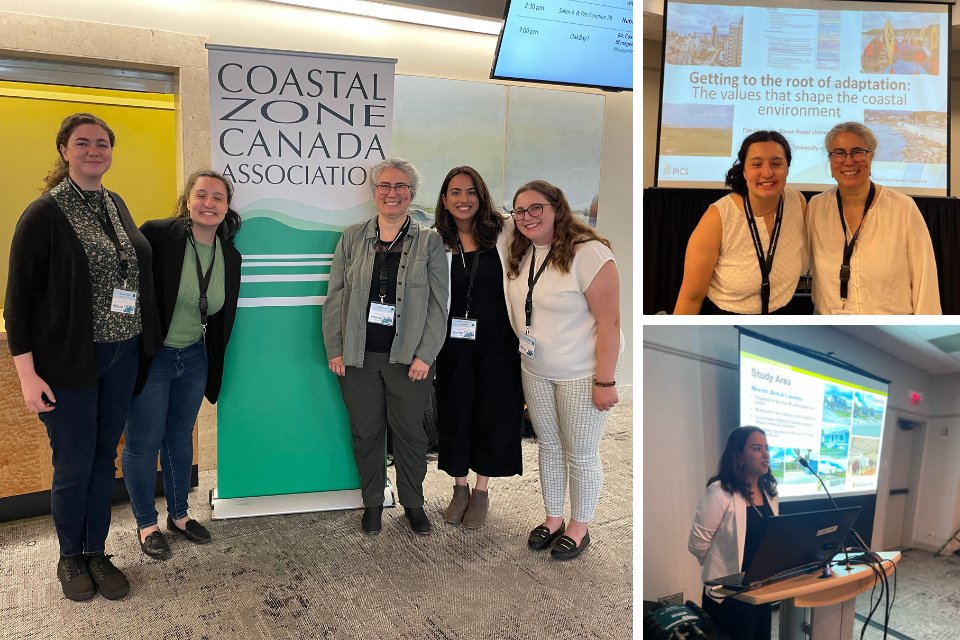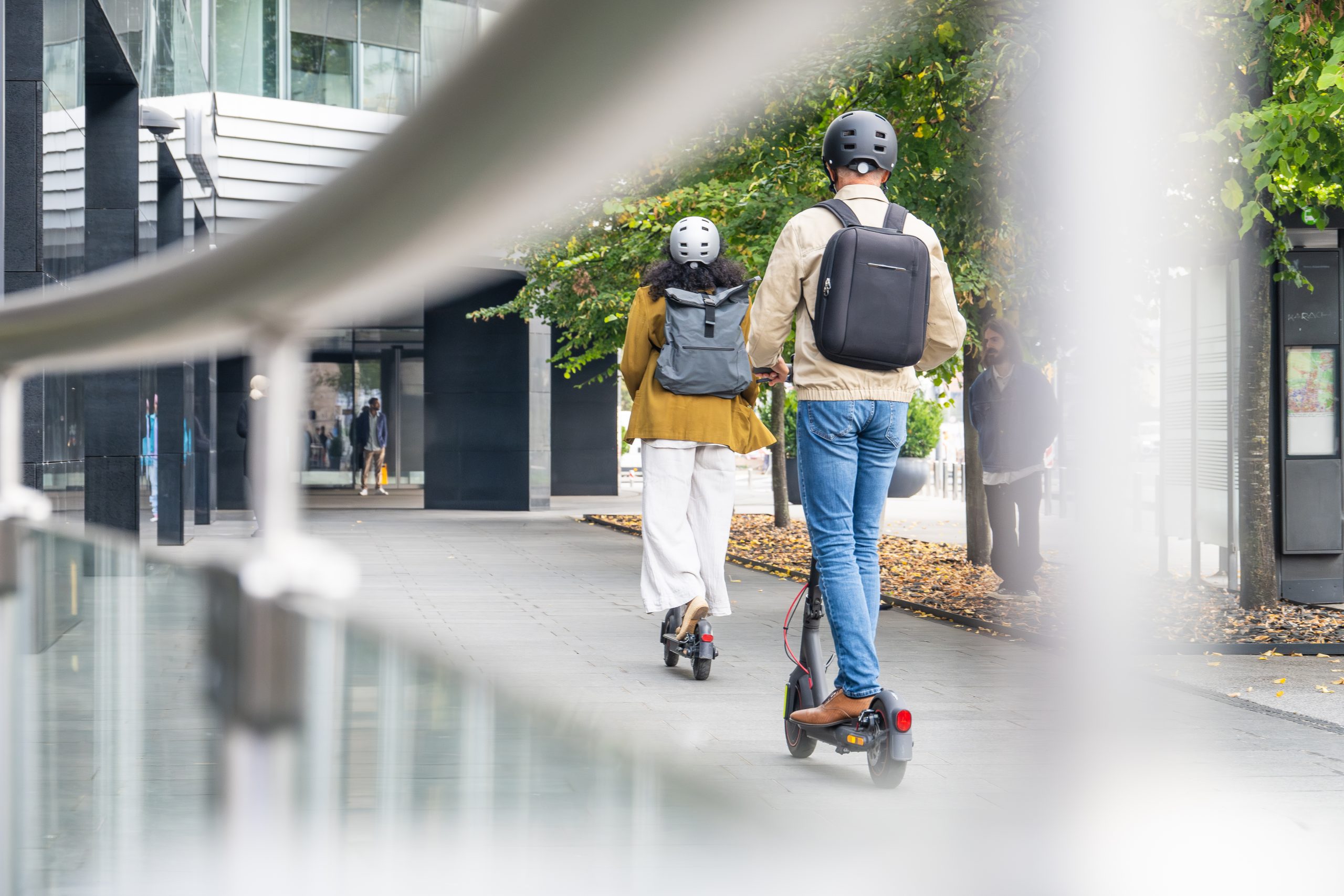
Guest blog by Tira Okamoto, Living with Water student researcher
Tira Okamoto is a Master of Resource Management (Planning) student at Simon Fraser University and a PICS Scholar with the Living with Water project. Her research interests include equitable coastal adaptation, governance, and community engagement.
What do rehabilitating sea otters using Indigenous knowledge, kelp ecologies, and values-based adaptation have in common? They reflect the breadth and depth of presentations and workshops at the 2023 Coastal Zone Canada (CZC) Conference held June 11-15, 2023 on the unceded territories of the lək̓ʷəŋən people.
While it was my first CZC conference, I quickly realized the presenters and attendees represented a particular caliber of people working to protect, restore and steward coasts across Canada. I felt at home with my fellow coastal zone nerds.
Incorporated in 1993, the Coastal Zone Canada Association has roots in traditional coastal zone management practices. The association has worked to center a broader range of diverse voices and disciplines connected to the coast, including a focus on early career professionals and Indigenous expertise and representation, at this year’s conference. The conference was a natural fit to share the work of one of PICS’ interdisciplinary research projects – Coastal Adaptation: Living with Water (LWW).
LWW, a $1-million PICS Theme Partnership project, brings together university faculty and students, research partner organizations, and First Nations to address coastal adaptation along the southern coast of BC. LWW understands sea level rise as an opportunity to develop new relationships with water.
I’m a student researcher, also known as a PICS Scholar, on the project, studying at Simon Fraser University.
“Student research is an integral part of the Living with Water project, and it was exciting to see many of our PICS Student Scholars have the opportunity to present at CZC 2023,” says Vanessa Lueck, PICS Researcher-in-Residence for LWW.
Shaieree Cottar, a fellow LWW student researcher studying at the University of Waterloo, presented on how decision-making unfolds in disaster recovery, investigating the experience of Merritt, BC after its catastrophic 2021 flooding.
“I greatly enjoyed connecting with folks from multidisciplinary backgrounds — academics, practitioners, industry professionals,” she says, “and learning about the fascinating flood mitigation and community engagement projects across Canada.”
Felicia Watterodt, another Waterloo student on the research team, presented on her research on advancing collaborative watershed governance. She’s exploring how the 2021 floods were a focusing event and a window for creating policy for enhanced resilience.
Getting the opportunity to present my research findings and connect with other solution seekers in this space was the highlight of my conference experience,” she says.
Many LWW project partners also presented their work at CZC 2023. Matt Osler from City of Surrey participated as part of a panel on mobilizing interdisciplinary science and multiple ways of knowing to tackle coastal resilience. City of Vancouver staff reported back on the Sea2City Design Challenge, a project that several LWW student researchers have focused their research on, including myself. And Eric Balke from Ducks Unlimited led multiple presentations on various collaborative flood adaptation and marsh restoration projects in the Lower Mainland.
CZC 2023 had more to offer than just lecture-style presentations. Vanessa Lueck and I co-facilitated an interactive workshop on values-based coastal adaptation. The workshop described LWW’s explicit shared values and invited participants to reflect on their own adaptation values using a fun, “values card” activity.
The workshop was well attended and participants shared positive feedback. Many were excited to bring the values card activity to their own municipality, demonstrating the interest and curiosity to apply innovative approaches elsewhere in Canada.
By the end of the conference, the LWW student researchers felt reinvigorated with intertidal inspiration, new connections, and ideas.
What I loved about CZC was how interdisciplinary it was—having the opportunity to learn from and hear so many different perspectives and research streams was a fantastic way to infuse new ideas into my present and future research,” Felicia Watterodt says.
“As someone who likes research and who wants to teach, I thought my options were narrowly in the academic sphere,” says LWW student scholar Devon Jones, “but at CZC, I talked to people who were using advanced degrees to do research for all sorts of organizations… I learned that there are options open to me that I hadn’t considered.”
We, the Living with Water team, were grateful for the opportunity to share our work and to learn more about the vast world of coastal management in Canada. We left inspired by the many interdisciplinary efforts to bridge siloes and reaffirmed the need to decolonize coastal and marine spaces and make them more equitable and inclusive.


